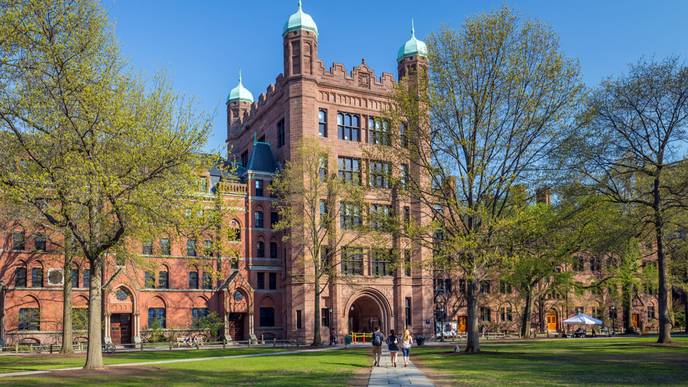ReachMD
Be part of the knowledge.™Parkinson’s Disease Research Center Being Formed at Yale

Yale School of Medicine has announced the formation of the Stephen and Denise Adams Center for Parkinson’s Disease Research, whose goal is to change the ways that Parkinson’s—a neurological disorder that currently affects an estimated one million people in the United States—is diagnosed and treated.
The director of the center will be Clemens Scherzer, MD, who comes to Yale in January 2024 from Harvard Medical School, where he is professor of neurology, director of the APDA Center for Advanced Parkinson Research, and director of the Precision Neurology Program at Brigham and Women’s Hospital. At Yale, Scherzer will also be appointed academic chief for the Division of Movement Disorders in the Department of Neurology.
Nancy J. Brown, MD, Jean and David W. Wallace Dean of Yale School of Medicine, looks forward to welcoming Scherzer. “Dr. Scherzer has been an international leader in understanding the genetic factors and transcriptional programs associated with Parkinson’s disease and in developing precision-medicine approaches to predict response,” says Brown. “I am grateful to the search committee and very much looking forward to witnessing Dr. Scherzer’s impact here.”
Scherzer says the resources available at Yale for Parkinson’s research are formidable, and he looks forward to bringing together scientists and engineers across disciplines from neurology, neuroscience, cell biology, genetics, bioinformatics, and computer science to advance research on Parkinson’s. “There is a deep bench at Yale centered on the cell biology of Parkinson’s and related pathways,” he says, “so it’s the perfect time and the perfect place to transform health care for Parkinson’s disease.”
Current treatments for Parkinson’s are designed to mitigate symptoms once they appear, and they are not tailored for individual patients. Scherzer hopes to change that reactive approach to one that is proactive. “Instead of waiting for the disease to progress and cause debilitating symptoms,” he says, ”a major focus of the center will be to develop predictive analytics to use genetics and data to predict what the future holds for a specific patient and to identify therapeutic targets and drugs to intervene ahead of time to prevent debilitating complications from ever arising.”
As we redefine neurology based on genetics, we can develop drugs that precisely target disease drivers shared by different brain diseases.
Clemens Scherzer, MD
At Harvard, Scherzer developed a biobank that, over 15 years, has collected specimens and followed the course of the disease in 3,000 patients. A similar biobank will grow at Yale. Scherzer will tap into data from those biobanks and others around the world, and form powerful global collaborations, for a more robust view of the genetics and disease progression of Parkinson’s than ever has been possible.
Discoveries that the center makes may go well beyond Parkinson’s. Scherzer notes that other conditions, including Lewy body, Alzheimer’s, and other forms of dementia produce different symptoms, but some of their genetic root causes appear to be highly related, and affected patients may also benefit from the center’s research. “As we redefine neurology based on genetics,” Scherzer says, “we can develop drugs that precisely target disease drivers shared by different brain diseases.”
The center and the recruitment of Dr. Scherzer were made possible by the philanthropic support of Stephen Adams, YC ’59 and his wife Denise, who are also the benefactors of the new Neurosciences Center on Yale New Haven Hospital’s Saint Raphael Campus. Their leadership gifts will help to reveal the biological underpinnings of Parkinson’s disease, advance targeted therapies for the disease, and move forward the delivery of cutting-edge neurosciences research and care in Connecticut, New England, and beyond.
Facebook Comments